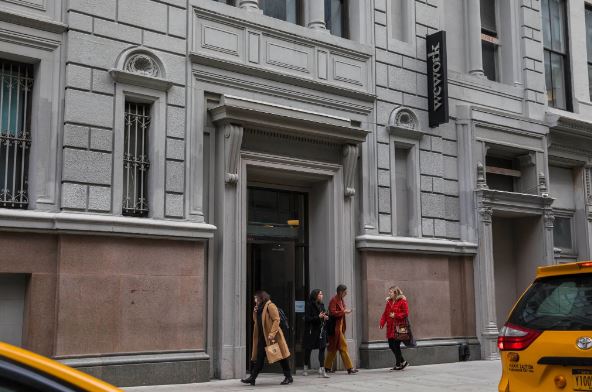WeWork, the company known for providing modern office spaces for start-ups and individuals, has filed for bankruptcy protection in the United States after struggling for several years.
The company filed for Chapter 11 bankruptcy protection in New Jersey as part of a “comprehensive reorganization” of its business. It cited an agreement with creditors holding 92 percent of its secured debt to restructure, which involves reducing its portfolio of office leases.
In September, WeWork had announced plans to renegotiate leases and exit certain locations. Currently, the company lists 660 locations in 37 countries, down from the 764 locations in 38 countries it had about two years ago. The actions taken on Monday will not impact WeWork franchises outside the United States and Canada.
WeWork’s financial difficulties have had a significant impact on landlords who leased a substantial amount of their space to the company. Many landlords had accepted reduced rents from WeWork in recent years, and some were struggling to meet debt payments, especially as fewer employees returned to the office during the pandemic.
WeWork has been in financial distress for some time. In August, the company revealed “substantial doubt” about its ability to continue operating. Last month, WeWork indicated it would miss interest payments totaling $95 million, which was an attempt to negotiate cost reductions with landlords. Following a 30-day grace period, the company reached an agreement with creditors for a seven-day forbearance, which expires Tuesday.
WeWork, once aspiring to “elevate the world’s consciousness,” was founded in 2010 and focused on leasing office space to various customers, including freelancers, small businesses, and larger corporations. It rapidly expanded its presence globally and was heavily financed by SoftBank, with investments totaling over $10 billion.
The company’s co-working spaces became synonymous with modern work culture and attracted freelancers and start-ups. However, WeWork faced governance and financial issues, leading to the shelving of its initial public offering (IPO) in August 2019. Co-founder Adam Neumann stepped down as CEO, and SoftBank provided a bailout in October 2019, valuing the company at $7 billion.
WeWork’s struggles continued, especially with the onset of the COVID-19 pandemic, which led to a surge in remote work. Under the leadership of CEO Sandeep Mathrani, who took over in February 2020, the company went public through a merger with a special-purpose acquisition company in October 2021. It started closing locations and renegotiating leases with landlords and underwent restructuring to reduce its debt. Mathrani left the company after the restructuring, and WeWork recently announced its new CEO, David Tolley.

